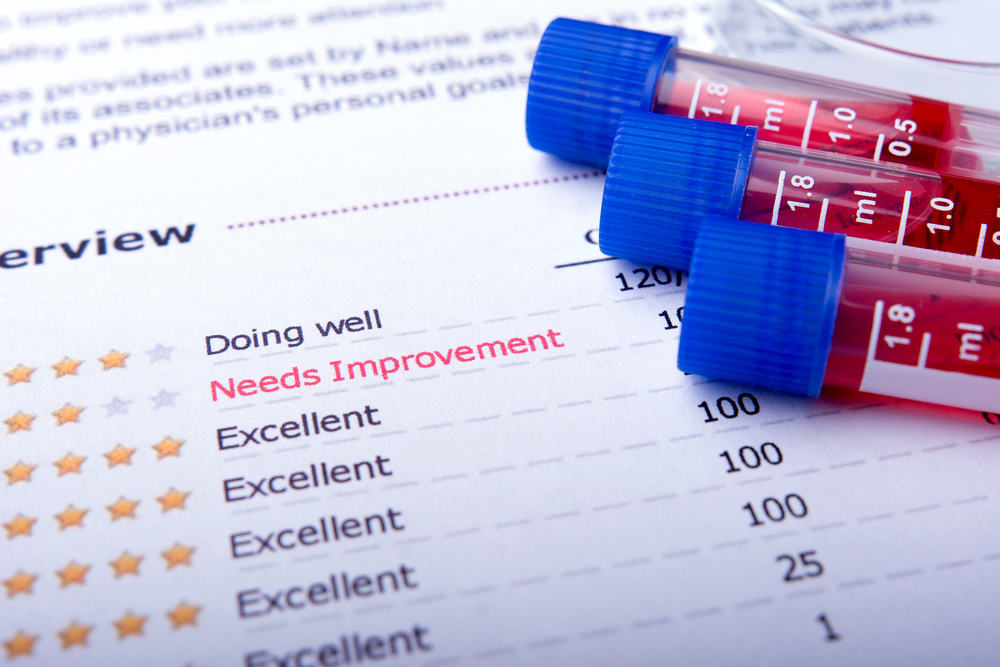Contents:
Medical Video: Kidney Disease: Understanding Your Lab Values
People who experience chronic kidney disease may have to undergo some or all of the following tests and measurements. If you have kidney disease, ask your doctor about the tests you will do and how often the tests will be done. Talk to your doctor about your test results. If your test score is not within the normal range, ask how to improve this condition.
Serum creatinine: Creatinine is a waste product in your blood that comes from muscle activity. This is usually released from the blood by your kidneys, but when kidney function slows down, creatinine levels increase. Your doctor must use your serum creatinine test results to calculate your GFR.
Glomerular Filtration Rate (GFR): Your GFR tells you how many kidney functions you have. This can be estimated from the creatinine blood level. If your GFR falls below 30 you will need to check with a kidney disease specialist (called nephrologist), your kidney doctor will talk to you about treatment for kidney failure such as dialysis or kidney transplantation. GFRs below 15 indicate that you need to start one of these treatments.
Blood Urea Nitrogen (BUN): Urea nitrogen is a normal waste product in your blood that comes from breaking down protein from the food you eat and from your body's metabolism. This substance is usually released from the blood by your kidneys, but when kidney function slows down, the level of BUN increases. BUN can also increase if you eat more protein, and can be lower if you eat less protein.
Urine Protein: If the kidney is damaged, a leak of protein occurs in your urine. A simple test can be done to detect protein in your urine. Persistent protein in urine is an early sign of chronic kidney disease.
Mikroalbuminuria: This is a sensitive test that can detect small amounts of protein in the urine.
Urinary Creatinine: This test estimates your urine concentration and helps to provide accurate protein results. Protein-to-Creatinine Ratio: This estimates the amount of protein you excrete in your urine in a day and avoids the need to collect your urine sample 24 hours.
Serum Albumin: Albumin is a type of body protein made from the protein you eat every day. Low levels of albumin in your blood can be caused by not enough protein or calories from your diet. Low levels of albumin can cause health problems such as difficulty fighting infection. Ask your dietitian how to get the right amount of protein and calories from your diet.
nPNA: Your nPNA (normal appearance of protein nitrogen) is a test to find out if you eat enough protein. This measurement comes from laboratory studies that include urine collection and blood tests. Your dietitian can request accurate food records to do this test.
Subjective Global Assessment (SGA): Your dietitian can use SGA to help check for signs of nutritional problems. Your dietician will ask questions about your daily diet and check your weight, fat and muscles in your face, hands, arms, shoulders and legs. Ask your dietitian about your score at SGA. If your score is too low, ask how to fix it.
Hemoglobin: Hemoglobin is a part of red blood cells that carries oxygen from the lungs to all parts of your body. Your hemoglobin level tells your doctor if you have anemia, which makes you feel tired and have little energy. If you have anemia, you may need treatment with iron supplements and a hormone called erythropoietin (EPO). The goal of treatment of anemia is to achieve and maintain a hemoglobin level of at least 11 to 12.
Hematocrit: Hematocrit is a measure of the red blood cells that your body makes. Low hematocrit can mean you have anemia and need treatment with iron and EPO. You will feel less tired and have more energy when your hematocrit reaches a minimum of 33 to 36 percent.
TSAT and Ferritin Serum: Your TSAT and serum ferritin are levels of iron in your body. Your TSAT must be above 20 percent and your serum ferritin must be above 100. This will help you build red blood cells. The doctor will recommend iron supplements if needed to reach the target level for you.
Parathyroid Hormone (HPT): High levels of parathyroid hormone (HPT) may be a result of a low balance of calcium and phosphorus in your body. This can cause bone disease. Ask your doctor if your HPT level is in the right range. Your doctor may provide a special prescription form of vitamin D to help reduce your HPT. Caution: Do not take vitamin D on the market unless instructed by your doctor.
Calcium: Calcium is a mineral that is important for strong bones. Ask your doctor what level of calcium you should. To help balance the amount of calcium in your blood, your doctor may ask you to use calcium supplements and special prescription forms of vitamin D. Only use supplements and medications recommended by your doctor.
Phosphor: High levels of phosphorus can cause weak bones. Ask your doctor what level of phosphorus you should have. If your phosphorus level is too high, your doctor may ask you to reduce food intake that is high in phosphorus and take a type of drug called a phosphate binder with your food and snacks.
Potassium:Potassium is a mineral in your blood that helps your heart and muscles function properly. Potassium levels that are too high or too low can weaken the muscles and change your heart rate. Do you need to change the amount of high potassium intake in your diet depending on your kidney disease. Ask your doctor what level of potassium you should have. Your dietitian can help you plan your diet to get the right amount of potassium.
Weight: Maintaining a healthy weight is important for your overall health. If you lose weight without even trying, you might not get the right nutrition to stay healthy. Your dietitian can suggest safe ways to add extra calories to your diet if needed. On the other hand, if you slowly gain too much weight, you may need to reduce calories and increase your level of activity. A sudden increase in body weight can also be a problem. If accompanied by swelling, shortness of breath and increased blood pressure, it may be a sign of too much fluid in your body. Talk to your doctor if your weight changes.
Blood pressure: Ask your doctor how much blood pressure is good for you. If your blood pressure is high, be sure to follow all the steps in the medication prescribed for you, which might include using high blood pressure medication, reducing the amount of salt in your diet, reducing excess weight and taking a regular exercise program.
Total cholesterol: Cholesterol is a fat substance found in your blood. High cholesterol levels can increase your chances of having heart problems and blood circulation. For many patients, a good level of total cholesterol is below 200. If your cholesterol level is too high, your doctor may ask you to make some changes in your diet and increase your level of activity. In some cases, drugs are also used.
HDL cholesterol: HDL cholesterol is a type of "good" cholesterol that protects your heart. For many patients, the target level for HDL cholesterol is above 40.
LDL cholesterol: LDL cholesterol is a type of "bad" cholesterol. High LDL levels can increase your chances of having heart problems and blood circulation. For many patients, the target level for LDL cholesterol is below 100. If your LDL level is too high, your doctor may ask you to make some changes in your diet and increase your level of activity.
Triglycerides: triglycerides are a type of fat found in your blood. High triglyceride levels along with high levels of total cholesterol and LDL can increase your chances of heart problems and blood circulation.












